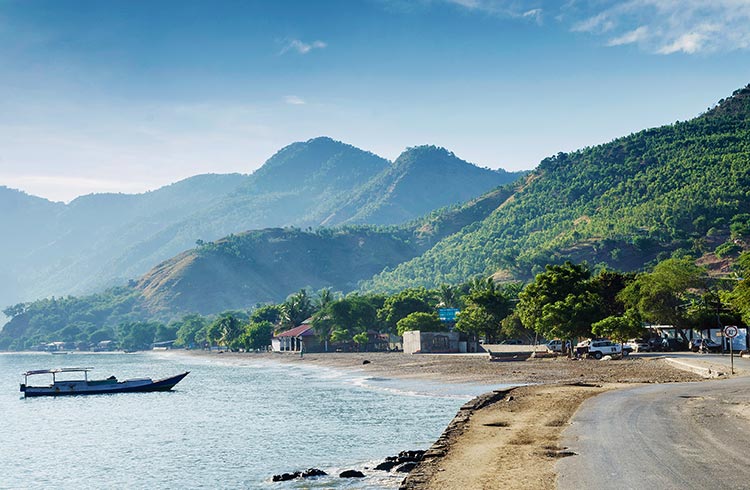Getting Around East Timor: Essential Transport Safety Tips
As tourism grows in East Timor, the lacking public transport system becomes more obvious. Our safety expert shares their tips on how to get around this island nation safely.
 Photo © Getty Images/jackmalipan
Photo © Getty Images/jackmalipan
Timor L'Este has a very poor transport system, and travelers need to be aware extra caution is required outside the capital. However one thing the territory does have is some decent roads connecting Dili with other regions.
During the 25-year occupation of the county by Indonesian forces many roads were built – not just to improve the country's infrastructure but so they could move troops around to fight guerillas fighting for independence.
But the increasing number of cars on the roads, the generally poor road quality, the lack of decent road signs and the absence of street lighting makes driving in Timor L'Este hazardous – especially in Dili. It is fair to say accidents are frequent!
Outside of the capital main routes are often single-track mountain roads, which can deteriorate rapidly and become impassable, particularly during the rainy season (December-April).
Public transport fares and rules
It is important to take care if using taxis, microlets or trucks used as public transport due to the poor condition of many of these vehicles and poor driving standards.
There is also an increased risk of robbery on these well-used private services.
Be aware public transportation operators have been known to unexpectedly drop passengers at locations other than their destination due to the operators' fears about certain areas or hours.
Disagreement about fares has occasionally led to hostilities. So try and agree on a fare before using the service.
As a general rule public transport is generally inadvisable and is unavailable after dark.
Rainy season safety
During the rainy season, travel on all cross-island roadways should be considered to be risky.
You should use caution when traveling on the cross-island roadways in the mountain areas of Aileu, Ermera, Manatuto, Ainaro, and Manufahi provinces.
In the past rain showers have severely damaged several cross-island roadways, and several vehicles have had to be airlifted out of the area south of Aileu due to landslides and roadway damage.
Accidents on roads
Accidents occur frequently.
When there is an accident, you should contact the police.
Worryingly for travelers bystanders sometimes attack the driver perceived to be responsible for a traffic accident.
This is more common in rural areas and in accidents involving Timorese drivers, but crowds have occasionally attacked expatriate drivers at the scene of an accident.
If you are involved in an accident and believe that there is a threat of bodily harm from people at the scene of the accident, it is advisable to drive to the nearest police station before stopping.
Security situation check
It is possible to check the security situation, road conditions and the possibility of military operations with United Nations police (UNPOL) before undertaking travel.
The National Operations Centre can be called 24 hours a day on (670) 723 0479.
The National Emergency Number, 112, should only be used in emergencies and will place the caller in contact with police in the vicinity of the caller.
You can also get information from the Security Operations Centre within the United Nations Integrated Mission in Timor Leste (UNMIT).
The centre can be contacted 24 hours a day on (670) 330 4100, extensions 5454/5451 or (670) 723 0635.
Unexpected hazards
Be aware makeshift barricades are sometimes used as unauthorised road blocks and may appear anywhere in Timor L'Este.
Also, unexploded ordnance is routinely discovered in open areas outside Dili.
These are left over from World War 2 and the Indonesian occupation.
You should take particular care when hiking or moving about on foot in rural areas.
If you are planning to travel by motorbike or bicycle be aware you may have to bring your own good quality helmet as such things are not common in Timor L'Este
Finally if traveling by sea be aware Timor L'Este's almost complete lack of naval capabilities means the waters around it are totally lawless.
Illegal fishing and smuggling is widespread.
In this context it is worthwhile mentioning Piracy occurs in South East Asian waters so travelers using sea transport should take appropriate precautions.
Simple and flexible travel insurance
You can buy at home or while traveling, and claim online from anywhere in the world. With 150+ adventure activities covered and 24/7 emergency assistance.
Get a quote
No Comments